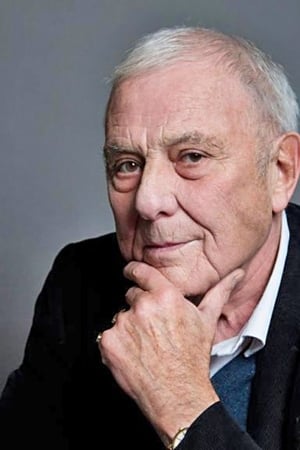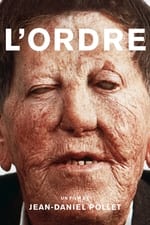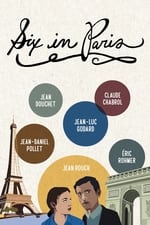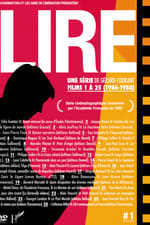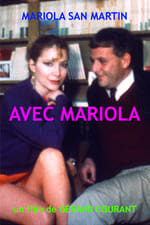Información personal
Conocido por Interpretación
Créditos conocidos 20
Sexo Masculino
Fecha de nacimiento 28 de noviembre de 1936
Fecha de defunción 5 de mayo de 2023 (86 años)
Lugar de nacimiento Talence, Gironde, France
También conocido como
- -
Puntuación del contenido
100
¡Sí! ¡Buena pinta!
Iniciar sesión para informar de un problema
Biografía
Philippe Sollers (born Philippe Joyaux; 28 November 1936 – 5 May 2023) was a French writer and critic. In 1960 he founded the avant garde literary journal Tel Quel (along with writer and art critic Marcelin Pleynet), which was published by Le Seuil and ran until 1982. Sollers then created the journal L'Infini, published first by Denoel, then by Gallimard with Sollers remaining as sole editor.
Sollers was at the heart of the period of intellectual fervour in the Paris of the 1960s and 1970s. He contributed to the publication of critics and thinkers such as Jacques Derrida, Jacques Lacan, Louis Althusser, and Roland Barthes. Some of them were later described in his novel Femmes (1983), alongside other figures of French intellectualism active before and after May 1968.
His writings and approach to language were examined and praised by French critic Roland Barthes in his book Writer Sollers.
Sollers was born as Philippe Joyaux on 28 November 1936, in Talence, France. His family ran the local Société Joyaux Frères, the iron factory Recalt producing material for kitchens, metal constructions and machines for the aircraft manufacturer SNCASO under the German military administration in occupied France during World War II. His parents were Octave Joyaux and Marcelle Molinié. He moved to Paris in 1955, studied at the Lycée privé Sainte-Geneviève of Versailles and at the ESSEC Business School.
Sollers married Julia Kristeva in 1967. He died on 5 May 2023, at the age of 86.
Following his first novel, A Strange Solitude (1958), hailed by François Mauriac and Louis Aragon, Sollers began, with The Park (1961) the experiments in narrative form that would lead to Event (Drame, 1965) and Nombres (1968). Jacques Derrida analyzed these novels in his book Dissemination. Sollers then attempted to counter the high seriousness of Nombres in Lois (1972), which featured greater stylistic interest through the use of wordplay and a less formal style. The direction taken by Lois was developed through the heightened rhythmic intensity of non-punctuated texts such as Paradis (1981).
Sollers's other novels include Women (1983), Portrait du joueur (1984), Le coeur absolu (1986), Watteau in Venice (1991), Studio (1997), Passion fixe (2000), and L'étoile des amants (2002), which introduced a degree of realism to his fiction, in that they make more explicit use of plot, character, and thematic development. They offer the reader a fictional study of the society in which he or she lives by reinterpreting, among other things, the roles of politics, media, sex, religion, and the arts.
Source: Article "Philippe Sollers" from Wikipedia in English, licensed under CC-BY-SA 3.0.
Philippe Sollers (born Philippe Joyaux; 28 November 1936 – 5 May 2023) was a French writer and critic. In 1960 he founded the avant garde literary journal Tel Quel (along with writer and art critic Marcelin Pleynet), which was published by Le Seuil and ran until 1982. Sollers then created the journal L'Infini, published first by Denoel, then by Gallimard with Sollers remaining as sole editor.
Sollers was at the heart of the period of intellectual fervour in the Paris of the 1960s and 1970s. He contributed to the publication of critics and thinkers such as Jacques Derrida, Jacques Lacan, Louis Althusser, and Roland Barthes. Some of them were later described in his novel Femmes (1983), alongside other figures of French intellectualism active before and after May 1968.
His writings and approach to language were examined and praised by French critic Roland Barthes in his book Writer Sollers.
Sollers was born as Philippe Joyaux on 28 November 1936, in Talence, France. His family ran the local Société Joyaux Frères, the iron factory Recalt producing material for kitchens, metal constructions and machines for the aircraft manufacturer SNCASO under the German military administration in occupied France during World War II. His parents were Octave Joyaux and Marcelle Molinié. He moved to Paris in 1955, studied at the Lycée privé Sainte-Geneviève of Versailles and at the ESSEC Business School.
Sollers married Julia Kristeva in 1967. He died on 5 May 2023, at the age of 86.
Following his first novel, A Strange Solitude (1958), hailed by François Mauriac and Louis Aragon, Sollers began, with The Park (1961) the experiments in narrative form that would lead to Event (Drame, 1965) and Nombres (1968). Jacques Derrida analyzed these novels in his book Dissemination. Sollers then attempted to counter the high seriousness of Nombres in Lois (1972), which featured greater stylistic interest through the use of wordplay and a less formal style. The direction taken by Lois was developed through the heightened rhythmic intensity of non-punctuated texts such as Paradis (1981).
Sollers's other novels include Women (1983), Portrait du joueur (1984), Le coeur absolu (1986), Watteau in Venice (1991), Studio (1997), Passion fixe (2000), and L'étoile des amants (2002), which introduced a degree of realism to his fiction, in that they make more explicit use of plot, character, and thematic development. They offer the reader a fictional study of the society in which he or she lives by reinterpreting, among other things, the roles of politics, media, sex, religion, and the arts.
Source: Article "Philippe Sollers" from Wikipedia in English, licensed under CC-BY-SA 3.0.
Conocido por
Interpretación
|
||||||
|
||||||
|
||||||
|
||||||
|
||||||
|
||||||
|
||||||
|
||||||
|
||||||
|
||||||
|
||||||
|
||||||
|
||||||
|
Equipo
|
Guion
|
